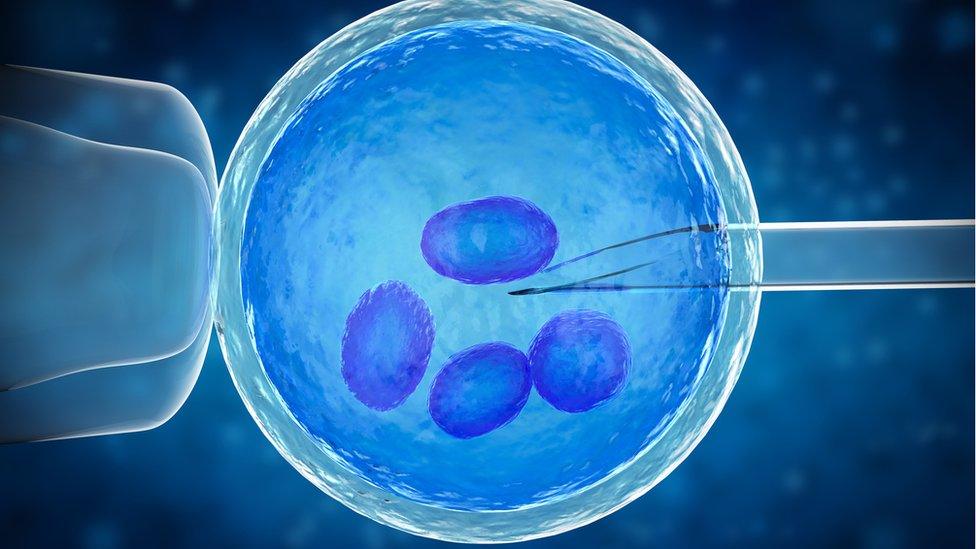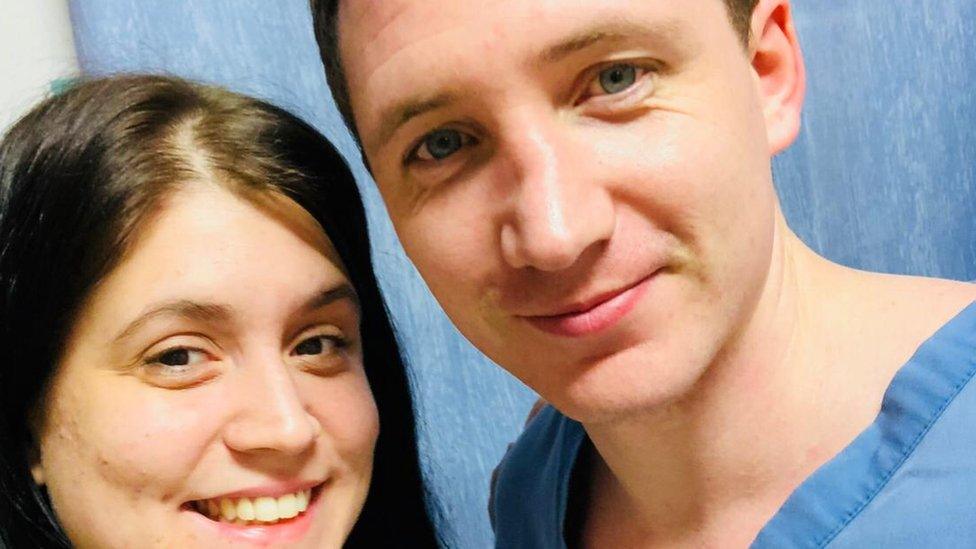Coronavirus: Fertility treatments to start again in UK
- Published

Fertility treatments include IVF
Fertility clinics in the UK can open again from 11 May to offer treatment to families wanting to have children.
Clinics - both NHS and private - will first need to show they can provide safe and effective treatment, the fertility regulator said.
There must be social distancing in waiting rooms and more appointments by phone may be used, as well as PPE.
The move is part of a plan to ramp up services again now that the peak of the epidemic is past.
Health Secretary Matt Hancock made the announcement at the government's daily briefing on coronavirus, saying he knew "how time sensitive and important" this was for families affected.
"When I say thank you to all those staying at home, of course I'm saying thank you on behalf of the lives you are saving - but also on behalf of the lives the NHS can now create," he said.
Sally Cheshire, chairwoman of the Human Fertilisation and Embryology Authority (HFEA) - said the closure of clinics had been "extremely distressing" for patients and this would be "good news" for those trying for a much longed-for family.
'I feel sad, frustrated, angry'

Katy found out she was having her first miscarriage at her 12-week scan, two weeks before her wedding to husband Tom
Katy and husband Tom, from Exeter, Devon, started IVF after going through two miscarriages, including one just before their wedding five years ago.
She should have had her fourth IVF transfer two weeks ago.
"It is heartbreaking," she said. "I just feel lost and sad, frustrated, angry.
"I was three weeks into my treatment... They basically put me into menopause with injections, when they stopped treatment."
Read more: Couple's IVF treatment delay 'heartbreaking'

Fertility services were suspended on 23 March, the day lockdown began in the UK.
Other elective NHS treatments were also put on hold.
Before reopening, clinics will be asked to show that they are able to keep patients and staff safe, external while offering and carrying out fertility treatment.
Personal protective equipment should also be provided if necessary.
It is thought private clinics may be able to restart services more quickly than NHS ones whose staff may have been redeployed in front-line roles during the pandemic.
Mr Hancock said all fertility patients should be dealt with fairly and not face any additional disadvantage as a result of services being stopped for six weeks.